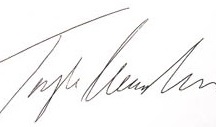
by Richard Subber | Aug 8, 2023 | American history, Book reviews, Books, Democracy, History, Politics, Power and inequality
we need love, and we need trust…
Book review:
The Crisis of Democratic Capitalism
by Martin Wolf
New York: Penguin, 2023
474 pages
Wolf examines the problem in plain language: the imperatives and the expectations of democratic government both complement and conflict with the pursuit of personal and corporate success in a capitalist world.
His arguments and considerations are a lot more nuanced than that. You can learn to think in new ways about the despairing failures that put our society at risk.
The Crisis of Democratic Capitalism emphasizes one key point: in both the democratic and capitalist frames of reference, we need to be able to trust our leaders and the folks whose personal interests are at variance with those of the rest of the members of our society.
Aye, there’s the rub.
* * * * * *
Book review. Copyright © Richard Carl Subber 2023 All rights reserved.
Book review: An Empire Divided
King George and his ministers
wanted the Caribbean sugar islands
more than they wanted the 13 colonies…
by Andrew Jackson O’Shaughnessy
–
As with another eye: Poems of exactitude with 55 free verse and haiku poems,
and the rest of my poetry books are for sale on Amazon (paperback and Kindle)
and free in Kindle Unlimited, search Amazon for “Richard Carl Subber”
* * * * * *

by Richard Subber | Aug 3, 2023 | Book reviews, Books, Joys of reading
a storytelling style…
Book review:
A Gentleman in Moscow
by Amor Towles (b1964)\
New York: Viking, an imprint of Penguin Random House, Inc., 2016
462 pages
A Gentleman in Moscow has an almost simplistic plot line: a nobleman is condemned to perpetual house arrest, living in an attic room in a fine hotel in Moscow in the 1920s.
What Towles brings to the party is an almost casual storytelling style embedded in a fecundity of warmly engaging words and people.
It’s simply true that I was drawn to continue reading about Count Alexander Rostov and Nina.
You can imagine how the story ends. I could.
Caveat: Towles didn’t need 462 pages to tell this story in the best way.
* * * * * *
Book review. Copyright © Richard Carl Subber 2023 All rights reserved.
“Boil up” and other good manners…
The “Hobo Ethical Code” is worth a quick read.
–
As with another eye: Poems of exactitude with 55 free verse and haiku poems,
and the rest of my poetry books are for sale on Amazon (paperback and Kindle)
and free in Kindle Unlimited, search Amazon for “Richard Carl Subber”
* * * * * *

by Richard Subber | Jul 27, 2023 | Book reviews, Books, History
swords, and dragons, and boasting…
Book review:
Beowulf
Seamus Heaney, trans.
New York, W. W. Norton and Company, 2000
213 pages
A long time ago, a thousand years, give or take, an anonymous Anglo-Saxon poet writing in the Old English language completed a 3,182-line poem we call “Beowulf.”
Just about everyone thinks it’s a classic.
It hasn’t been adapted for TV yet, and there are a number of reasons for that. It’s heroic, but the modern English translation is dramatically flat.
It’s about tough guys with swords, and dragons, and mead halls, and manly boasting, and such.
Beowulf is everything it’s made out to be, and not much more.
I’m happy to assume that it was a more thrilling read and a more entrancing tale in the 9th or 10th century, or whenever it was first written and taken on the road by the storytellers.
Beowulf is a whole lot better than TV.
* * * * * *
Book review. Copyright © Richard Carl Subber 2023 All rights reserved.
Book review:
The American Revolution: A History
The “Founders” were afraid
of “democracy”…
by Gordon S. Wood
–
Above all: Poems of dawn and more with 73 free verse poems,
and the rest of my poetry books are for sale on Amazon (paperback and Kindle)
and free in Kindle Unlimited, search Amazon for “Richard Carl Subber”
* * * * * *

by Richard Subber | Jul 11, 2023 | Book reviews, Books, Human Nature, Reflections
“…but not less”
Book review:
Thinking in Pictures: My Life with Autism
by Temple Grandin (b1947)
Foreword by Oliver Sacks
New York: Vintage Books, a Division of Random House, Inc., 1995, 2nd ed. 2006
270 pages
Thinking in Pictures is a calmly important book.
Probably you don’t know much about autism. Temple Grandin knows a lot, and she can teach you about the people who live lives that are different from yours. Really.
“Different, but not less.” That’s what her science teacher said about her.
She writes in a reserved tone, offering a grand sweep of what was known about autism in the mid 1990s and again in the mid 2000s. She talks about the high points and the low points of the rocky road of her life.
Temple Grandin talks with precocious understanding about animals. You’ll learn from this element as well.
I re-learned this very sobering truth: nearly everyone doesn’t experience the world the same way I do.
* * * * * *
Book review. Copyright © Richard Carl Subber 2023 All rights reserved.
The Reader (Der Vorleser)
Not just a rehash of WWII…
by Bernhard Schlink
–
Writing Rainbows: Poems for Grown-Ups with 59 free verse and haiku poems,
and the rest of my poetry books are for sale on Amazon (paperback and Kindle)
and free in Kindle Unlimited, search Amazon for “Richard Carl Subber”
* * * * * *

by Richard Subber | Jul 6, 2023 | Book reviews, Books, Joys of reading
find your groove…
Book review:
The Element:
How Finding Your Passion Changes Everything
by Ken Robinson, with Lou Aronica
New York: Viking, Penguin Group, 2009
274 pages
The theme of The Element is an exciting concept to think about.
I love his telling of this story: the six-year-old girl is hunched over her drawing, and she tells her teacher that she’s “drawing a picture of God,” and the teacher says “nobody knows what God looks like,” and the girl replies: “They will in a minute.”
Robinson tackles his inspirational advice: find your own distinctive talents and passions, and, when you recognize them, you’ll know you’re in the Zone, and you’ll love it.
Here’s what hinders us from finding our own Elements: we don’t fully understand the range of our capacities, how these salient capacities relate to each other, and how much potential we have to get better at stuff that makes us feel really good. (p. 9)
“The Element is the meeting point between natural aptitude and personal passion.” (p. 21)
“The highest form of intelligence is thinking creatively.” (p. 56)
“You can think of creativity as applied imagination.” (p. 67)
I think the first few chapters of The Element are enough to open your eyes and your mind to the wonderful challenge of tracking down and embracing your personal Element, if you haven’t done it already.
The rest of the book suggests that Robinson’s Element does not cover the talent for ending a book after you’ve said all that needs to be said. He wanders, and you might get bored.
* * * * * *
Book review. Copyright © Richard Carl Subber 2023 All rights reserved.
The “dime novels” in the Civil War
Think “blood-and-thunder”…
–
Above all: Poems of dawn and more with 73 free verse poems,
and the rest of my poetry books are for sale on Amazon (paperback and Kindle)
and free in Kindle Unlimited, search Amazon for “Richard Carl Subber”
* * * * * *

by Richard Subber | Jun 27, 2023 | Book reviews, Books, Human Nature, Joys of reading, Language
…death is an anticlimax…
Book review:
Les Liaisons Dangereuses
by Pierre-Ambroise Choderlos de Laclos
Originally published 1782
Translated as Dangerous Liaisons by Ernest Dowson, New York: Doubleday, 1998
Illustrations by Sylvain Sauvage
Les Liaisons Dangereuses is not a garden of delight.
This is a book about love, but the reader will find precious little of it in these pages.
An acquaintance dismissed this voluptuous tale, thus: “All they do is talk.”
Let’s begin there. The language is rich. I daresay that Laclos turns language into an erogenous zone in Les Liaisons Dangereuses.
If you aspire to a working understanding of good and evil, you could do worse than listen to the riveting chatter of the leading personae, who choose each word with careful, deliciously ribald, austerely cruel, and domineering intent. You really don’t want to be a friend, and you most assuredly don’t want to be an enemy.
Men, en garde! The Marquise de Merteuil impulsively thinks of cojones as table ornaments.
Ladies, away! The Vicomte de Valmont is a pirate lover, he sees women as prize ships ready for boarding.
One might wish to believe that the others are innocents: Cécile Volanges, Danceny, the Présidente de Tourvel. But, hold. Each of them seeks to play the game of love, but they are hardly able to distinguish winning from losing.
Yes, this is a boundless exposé of the worst elements—of human intrigue, self indulgence, hubris, vaunting egos, and careless poaching of souls—that masquerade as amour.
Yes, in a sense, the characters are stereotypes, but each is, remarkably, ingeniously, ingenuously, a masterpiece of the type. Laclos uses every pertinent word to make them real.
Yes, Les Liaisons is an ultimately degraded experience for both the characters and readers…ultimately, the reader must condemn the Marquise and the Vicomte for so many lives destroyed…death is an anticlimax in Liaisons Dangereuses.
The Marquise and the Vicomte are burdened with a moral framework that shuns the absolute—they have unimaginably unsatisfied desires, and no intellectual elaboration of right and wrong.
Yet, a gentle reader may offer these two a bare shred of pity.
The Marquise de Merteuil and the Vicomte de Valmont swirl through their lives, casually jousting with each other as they amuse themselves in controlling the fates of other men and women, but remaining unaware that they are not in control of their own fates.
Note for bibliophiles: Whether you read this in the original French, or in the lush translation by Ernest Dowson, accept the pain of experiencing a literary style that is no longer in vogue, prepare yourself for Laclos’ fabulous late 18th century style that discards a simple declarative sentence, readily, with apparent joy, whenever a sentence heavily laden with clauses, phrases, and modifiers will do just as well, heedless of the effect on a reader, whose inclination may be to appreciate the writhing drama of this story, with somewhat fewer words.
* * * * * *
Book review. Copyright © Richard Carl Subber 2023 All rights reserved.
Book review: The Snow Goose
…sensual drama, eminently poetic…
by Paul Gallico
–
My first name was rain: A dreamery of poems with 53 free verse and haiku poems,
and the rest of my poetry books are for sale on Amazon (paperback and Kindle)
and free in Kindle Unlimited, search Amazon for “Richard Carl Subber”
* * * * * *





